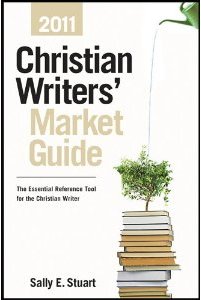Trends nearly dominate our culture. There are countless hair trends, fashion trends and even “business- trends.” And guess what? There are also writing-trends.
I didn’t know about that until a few years ago when it seemed like certain types of books were releasing around the same time. Maybe it’s me– but I noticed it. The reason is clear and evident. Whatever is popular (selling) is what some writers decide to write. And if you’re considering traditional publishing, you should know that they consider trends as well.
For example: It seems to me that after the Twilight series was turned into movies, Vampire series started to pop up everywhere. I’m assuming, writers considered Twilight’s success and thought to give it a shot. It was a trend.
Many Literary Agents notice trends because they are the ones who get query after query from aspiring authors looking to be traditionally published. Literary Agent, Chip MacGregor was asked about “writing trends” and he shared his thoughts here.
The truth is, they exist. And if you’re not careful, you can lose your identity as a writer by trying to keep up with them.
I admit, I once nearly got sucked up in that type of excitement myself. A certain trend gripped me– a specific genre that I thought always delivered the most beautiful work. But I quickly realized that I’d just be jumping on the bandwagon in that trend instead of staying true to who I am. I could explore that genre– and there is nothing wrong with that. But, much like other trends (i.e. fashion) you can lose yourself in them. You don’t want to be a “wavering writer.” Following your heart and writing what you know you’re meant to write will help you develop your platform and build your audience.
I believe trends come and go like the whispering wind around us. And it’s perfectly okay to consider switching up a style or trying something “new” if you really want to. However, the harm is that it can hurt your own writing goals.
Be True To Who You Are
When I began my writing journey, one of the first things the experts talked about was “being true to my own writing style and voice.” They asked me, “As a writer, what’s the one thing that would separate you from the millions of author’s in this word?”
When you pick up books by popular authors, you can easily distinguish between their book and others. It’s their style– you can “hear” them as you read. This is what you want to learn about yourself. You want to write in your own distinct voice and style. You want readers to read a book and say,”Yep, that’s Suzy alright. That’s her.”
Writers don’t have the same voice. We may have the same style or genere preference, but we don’t have the same voice or writing styles. We’re all uniquely designed to have a different voice. Learn more about your writing voice from Best Selling author, Jeff Goins. He has an excellent blog-post with tips on how to find your voice!
A Quick Recap…
If we’re not careful, we can lose our identity. I’d like to encourage you to consider how special you are and what makes your words important and unique.
Trends come and go. Don’t worry about what the trends are. Write what is in your heart to write– in the genre that you are led to write in and with your own style. Learn more about who you are as a writer and what message you’re trying to say (fiction or non-fiction). Here are a few more suggestions:
- Consider what genre you love and stick with it.
- Consider what makes you unique
- Consider blogging. It’s a great way to practice consistency.
- Consider ignoring trends.
Question for you:
Are you aware of “writing-trends?” Does writing-trends affect you in any way? How do you handle this?
Picture Source: Google Images. Artist: Kurven Design



